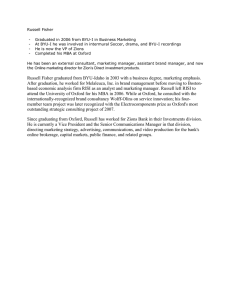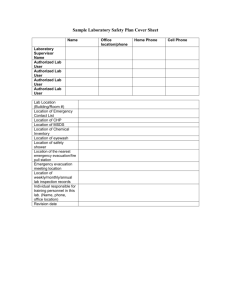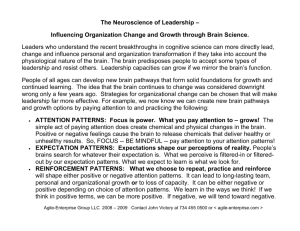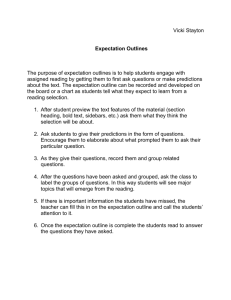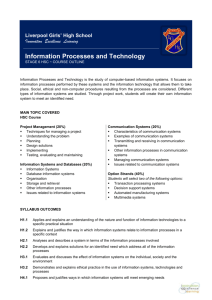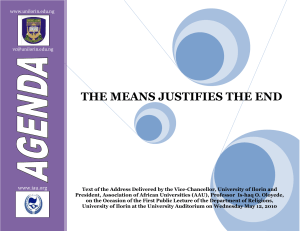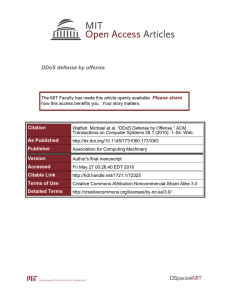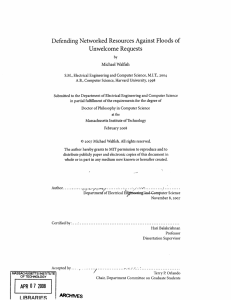Risk??
advertisement
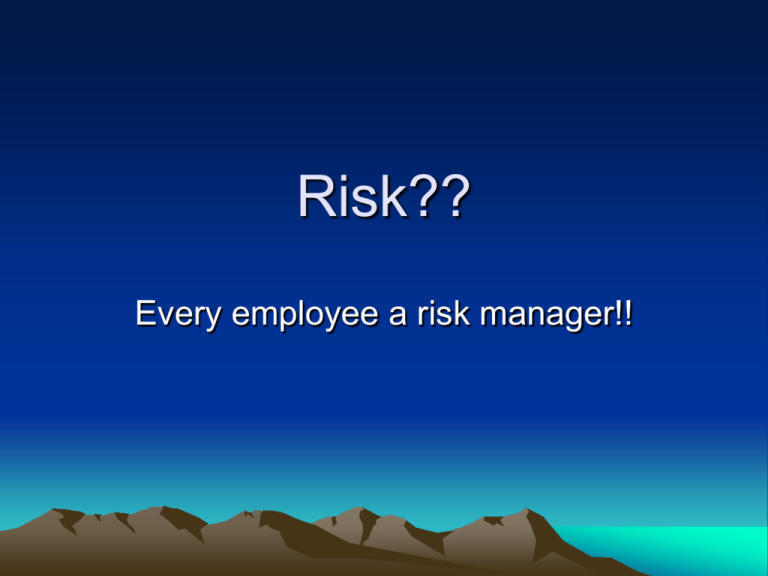
Risk?? Every employee a risk manager!! Is risk good or bad? • Is the goal elimination of all risk? • Do we insure all risk? • Or do we manage risk? Risk return and BYU-I • We take risks at BYU-I with the intent of getting something back that justifies the risk. • Investment in the new auditorium and MC addition is taking a risk – Opportunities for gathering and shared spiritual/learning experiences – More interaction & teaching among students – Hoping the $millions will provide an appropriate benefit Risk Management • Process of measuring or assessing risk and then developing strategies for managing risk. – Transferring risk – Avoiding risk – Reducing negative effects of risk – And accepting some risks with the inherent consequences – Deal with highest loss and/or probability first Informal Risk Management • • • • • • Most of the risk management is informal The process is the same Often done on the fly Rightfully we rejects some risky activities In some cases risk is accepted unwisely In others a moderate risk is accepted due to the potential benefits Intangible Risk • Deficit knowledge – Not knowing what is going on in departments • Relationship risk – reduces effectiveness • Operation ineffectiveness • Reputation risk • Violations of law • Anything that reduces institutional ability to achieve its mission Hiring • Each time a new employee is hired, the institution is taking a risk – with the expectation that the employee will add value to the mission of the university knowing some might not Examples – Risk Management • Each time a grounds keeper insists that a student employee wear ear plugs and protective eye wear • Each time and employee locks his office or computer • When an account steward reviews financial activity reports • When employees learn and adhere to travel policy Faculty • Each time a faculty member uses a new teaching method risk is being taken with the expectation that the learning experience will be enhanced. But there is some potential for a decline in the learning experience or other negative fallout. Okay, so what? • Don’t take risks that do not provide a commensurate return. • Don’t take risks where the loss potential is too high. • Don’t take unnecessary risks. • Don’t take risks you are not authorized to take. Words can haunt us and embarrass the university and church • Be thoughtful about what you say particularly in a public/classroom setting. • If you would not want it quoted in the scroll or national news, it might be best left unsaid. Be observant • If you note a physical hazard on campus, call the safety office and voice a concern – train others to do the same. • If students or employees are involved in something that includes unwarranted danger (physical, property, reputation) speak-up, Faculty • Experiential learning is a good thing but: – Make sure the value justifies the risk/cost – If a walk gets the job done then forget the bungee jumping – If travel adds little value then don’t travel – Assess the risks and rewards associated with each activity or program Things to Remember • There are only two or three people on this campus who are authorized to acknowledge university liability. • Never say “the university will cover that”. • Never say “I am sure the university has insurance for that injury or other issue”. • Direct potential claimants to the Safety Office or to Financial Services Manage Risk • As you fulfill your responsibilities be risk aware. – Measure and assess – Transfer risk if prudent - insurance – Avoid uncompensated risk – Reduce/mitigate risk where possible – Know and comply with University policy Remember You are a risk manager! Teach those you work with that they too are risk managers.
